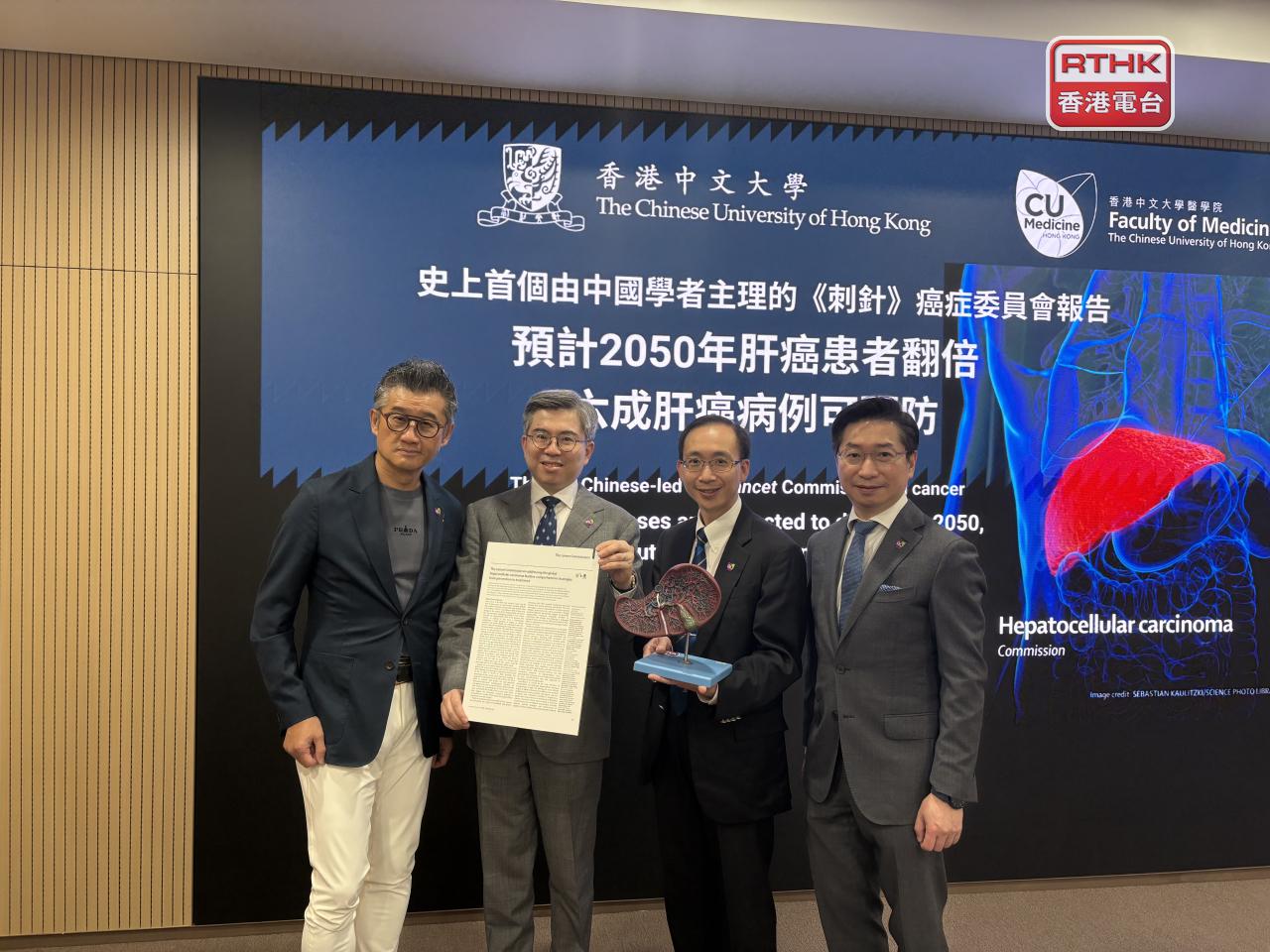Researchers from the Chinese University of Hong Kong on Wednesday said more than 60 percent of liver cancer cases are preventable through vaccination against hepatitis B, early screening and lifestyle changes such as reducing alcohol and maintaining a healthy weight.
A new study they published in The Lancet warns that global liver cancer cases could double to more than 1.5 million by 2050 if no preventatives steps are taken.
Lead author Professor Stephen Chan from CUHK’s oncology department said the SAR government can do more to promote territory-wide screening and raise awareness.
"We know that sometimes too fatty food can damage your heart, your brain, your lungs. But we would like to raise the fact that sometimes when you eat too oily food, it can also damage your liver by promoting fatty liver and increasing the risk of liver cancer," Chan said.
"In that case, I think food labelling of the calorie may be one of the early steps the government can consider so that our citizens are more aware of what they're eating. This is also a good starting point to teach them how to protect their liver by eating healthy and doing more exercise."
China accounts for more than 40 percent of global liver cancer cases, but has only managed a 0.3 percent yearly decline since 1990.
Rates are rising in Europe and North America due to obesity, diabetes and alcohol, while Africa has seen some of the steepest increases in case numbers.
Chan explained that the causes differ across regions.
"We know that the hepatitis B-related liver cancer remains to be a major aetiology in the Asian world, while for the Western world, it's more featured by the fatty liver-related or alcoholic-related liver cancer. So I think in terms of the policy or the focus, there may be some differences."
Chan said he hopes the report will influence global public health policies.
"We hope we can shape the research direction, especially when we talk about how to unify the research or change the direction of research between the East and West. We hope this will give some guidance and hopefully impactful changes in the long run."
It is the first major cancer report in The Lancet’s 200-year history to be led by Chinese scholars.





